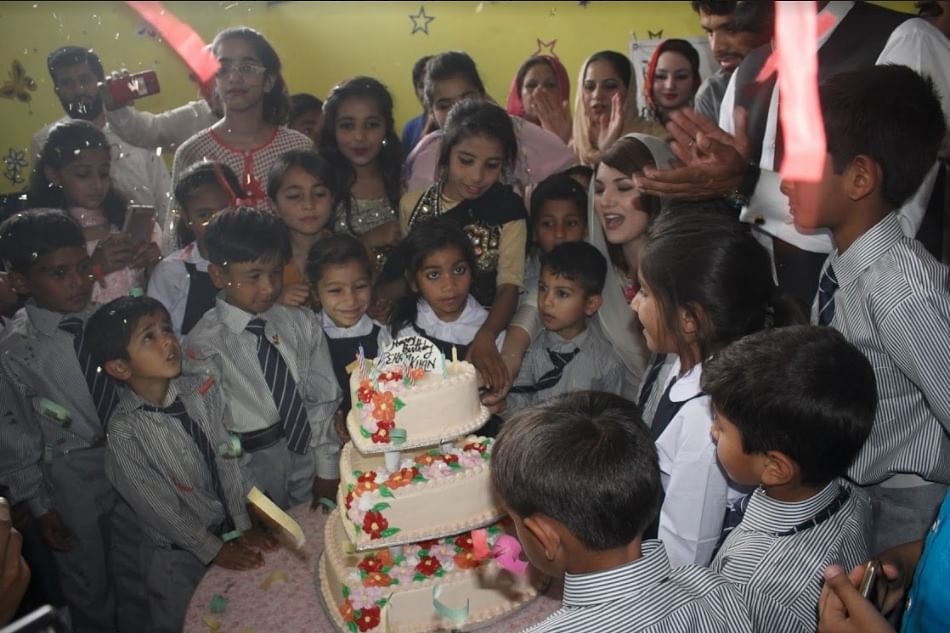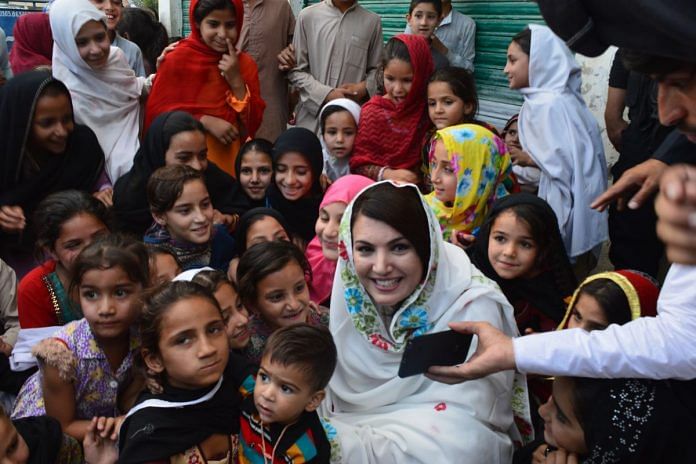Seven year-old Zainab’s body was found in the trash. She had been raped and murdered. The case highlights the need for greater awareness and stronger laws.
Last week, the already infamous district of Kasur (ranked in the top 10 districts for child sexual abuse) served us a fresh reminder that we are no better at protecting our children. Seven year-old Zainab’s body was found in the trash. The girl had been raped, and murdered.
As an image of the smiling child was circulated alongside photos of her brutalised body, it tore at our hearts. Zainab’s parents had been away to perform Umra (a religious pilgrimage) at the time of her abduction. They arrived just in time for her funeral. CCTV footage shows the little child walking happily with a young man holding her hand.
I was in London with a friend when the news broke. She was surprised when I informed her that child pornography and trafficking within the country had only been criminalised by the government in March 2016. To this day, there is no child protection law in Punjab.
Zainab’s case has angered parents, and political opposition leaders have preyed on these sentiments. Some leaders have gone out of their way to incite violence, and the issue has been unfairly politicised by opposition parties. The chief minister of Punjab, Shahbaz Sharif’s rather comfortable political hold on the biggest province in Pakistan is becoming increasingly intolerable for those who see him heading towards the top slot in the general elections this year. Despite his rapid response to the issue, the police has had to deal with violent protestors in the city of Kasur.
On hearing the news, I flew back to get to the bottom of story myself. There was heavy police deployment in the city. Locals told me how two protestors forcibly entered the chambers of local lawyers in Kasur, and were shot in the resulting scuffle. The media reported it as indiscriminate firing on protestors by the police. Demands of lynching and public executions have been made for the perpetrators of such acts. However, responsible civic society members have also been very vocal, advising restraint and suggesting long-term reforms to prevent such incidents.
A visit to the young female district commissioner’s office was a ray of hope in a rather bleak landscape. Saira Omar, one of only three new female officers at this position, was keen to share her personal efforts with me. I had read about this dynamic officer only a couple of months before. She had created a child protection unit in the district administration office (and the only one in Punjab). The district commissioner introduced me to their partner in this campaign, the Good Thinkers, a non-governmental organisation. Together, they have trained and held awareness programs for over 800 teachers in Kasur over the last three months.

The head of the Punjab Child Protection and Welfare Bureau, Sabah Sadiq, has been supporting these local efforts, and has provided psychologists for this particular child protection unit. The bureau is technically limited to working only for the welfare of destitute and neglected children.
Both women are going beyond the call of duty to clean the cursed city, and although it is commendable, this is not a long-term solution. There must be comprehensive policy created for the protection of children, and it should be implemented across all provinces. Budgetary allocation must be provided for child protection units. Recently, such units in eleven districts of Khyber Pakhtunkhwa were shut down. The budget allocated to them was a measly 10 million (Pakistani) Rupees annually.
In a positive step by the Punjab Government following this fresh incident, a #KeepMeSafe campaign has been launched, asking for suggestions to develop an action plan. Child rights activists and experts in the field have reiterated their long-ignored demands. The unnecessarily delayed National Commission on the Rights of the Child Bill 2015, and the Child Protection (Criminal Laws) Amendment Bill 2015 should be brought into force immediately. For crimes like paedophilia and rape, life imprisonment without parole or pardon must be enforced.
Punjab urgently needs specific legislation for child protection. At present, the Punjab Destitute and Neglected Children Act, 2004 does not cover child protection issues comprehensively. In Khyber Pakhtunkhwa and Sindh, child protection bills date back to 2010 and 2011 respectively. Areas under federal jurisdiction have no legislation to date.
Having said that, legislation alone is of no use when strict implementation is not carried out. The rise in incidents of child sexual abuse can be attributed to an increase in reporting. But this brave step must be coupled with a competent police force which responds positively, and handles such cases with sensitivity. Immediate attention must be paid to capacity-building of the lower tier of our police force.
Zainab’s case highlights the need for awareness in our society. Parents must be reminded of their responsibility to ensure the safety of a child. Why was a seven-year-old walking alone on a street where at least 11 other cases had been recently reported?
Children must be made aware of sexual abuse, and inappropriate touch must be explained to them. Children must be given the confidence to tell an adult, parent, or teacher about an incident without the risk of being shamed. In a set of heartbreaking tweets, famous actress Nadia Jamil bravely gave her personal, and painful, account of being abused as a child. Additionally, the media can, and should, be playing a far more responsible role in advocacy.
When I joined the Pakistani media in 2013, I was amazed to find that despite a surge in electronic media, there were no channels with content for children and the youth. When I was growing up in Pakistan back in the 1980s, we had only one state-owned channel (PTV). But we had well conceived content that was specifically created for children. Creative geniuses, like Sohail Rana and Farooq Qaiser, are nowhere to be found in the current era.
In my first foray into filmmaking, I touched upon the subject of paedophilia in a culturally-sensitive and subliminal style. The villain in Janaan is a respected teacher, who has been getting away with molesting his students for years. It was important to show that the authoritative village elder was arrested because of the whole community rose against him.
In the recently aired drama Udari, Ehson Khan plays a doting stepfather who molests his partner’s daughter. Initially, there was a campaign to ban the drama, but it went on to become a huge hit with audiences. These are isolated, individual efforts. There is a huge vacuum to be filled in our media output.
Across the border, Aamir Khan’s show Satyamev Jayate is a great example of how the issue needs to be addressed. Empowering audiences with information and suggesting solutions, as well as advocating active change, is the way forward. Unless our mindset as a society changes towards child abuse, no amount of legislation will help.
Reham Khan is a journalist, child rights activist and single parent in Pakistan.



